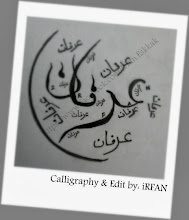The Ethiopian governor of Yemen, Abraha al-Ashram, envied the reverence in which the Ka'bah was held by the Arabs. Being a staunch Christian, he built a big cathedral in Sanaa (the capital of Yemen) and ordered the Arabs to go there for pilgrimage instead. The order was ignored. Not only that; someone entered the cathedral and made it unclean. The wrath of Abraha knew no bounds. In his fury, he decided to avenge it by demolishing and desecrating the Ka'bah itself. He advanced with a large army towards Mecca.
There were many elephants in his army; he himself rode a huge elephant. It was an animal which the Arabs had not seen before, thus the year came to be known as 'Amul-Fil (the year of the elephant), and it started an era for reckoning the years in Arabia. This remained in use until the days of 'Umar ibn al Khattab when, on the advice of Hazrat 'Ali ibn Abi Talib, he replaced it with the era of Hijra.
When news of the advance of Abraha's army came, the Arabian tribes of Quraish, Kinanah, Khuza'ah and Hudhayl joined together to defend the Ka'bah. Abraha sent a small contingent towards Mecca to capture the camels and young people. The contingent captured many animals, including two hundred of 'Abdul-Muttalib's.
Meanwhile, a man from the tribe of Himyar was sent by Abraha to Quraish to advise them that Abraha had not come to fight them: his only aim was to demolish the Ka'bah. But if the Quraish resisted, they would be crushed. Then followed a frightening description of his huge army, which, admittedly, was much larger and better equipped than all the tribes put together.
'Abdul-Muttalib replied to this ultimatum in these words: "By Allah, we do not want to fight him. So far as this House (the Ka'bah) is concerned, it is the House of Allah; if Allah wants to save His House, He will save it, and if He leaves it unprotected, no one can save it."
Then 'Abdul-Muttalib, with 'Amr ibn Lu'aba and some other prominent leaders, went to see Abraha. Abraha was informed before hand of the prestige and position of 'Abdul-Muttalib. Also the personality of 'Abdul-Muttalib was very impressive and awe-inspiring. When he entered Abraha's tent, the latter rose from his throne, warmly welcomed him, and seated him beside him on the carpet. During the conversation, 'Abdul-Muttalib requested him to release his camels. Abraha was astonished. He said: "When my eyes fell upon you, I was so impressed by you that had you requested me to withdraw my army and go back to Yemen, I would have granted that request. But now, I have no respect for you. Why? Here I have come to demolish the House which is the religious centre of yours and of your forefathers and the foundation of your prestige and respect in Arabia, and you say nothing to save it; instead, you ask me to return your few camels back to you?!"
'Abdul-Muttalib said: "I am the owner of the camels, (therefore, I tried to save them), and this House has its own Owner who will surely protect it." Abraha was stunned by this reply. He ordered the camels to be released, and the deputation of Quraish returned.
On the second day, Abraha issued orders to his army to enter Mecca. 'Abdul-Muttalib told the Meccans to leave the city and to seek refuge in the surrounding hills. But he, together with some leading members of Quraish, remained within the precincts of the Ka'bah. Abraha sent someone to warn them to vacate the building. When the messenger came, he asked the people who their leader was. All fingers pointed towards 'Abdul-Muttalib. He was again invited to go to Abraha where he had a talk with him. When he came out, he was heard saying: "The Owner of this House is its Defender, and I am sure He will save it from the attack of the adversaries and will not dishonour the servants of His House."
'Abdul-Muttalib then took hold of the door of the Ka'bah and, crying to Allah, prayed in the following words (of poetry):
(O Allah! Surely a man defends his own home, therefore, Thou shouldst protect Thy Own House. Their cross and their wrath can never overcome Thy wrath. O Allah, help Thy Own people against the fellows of the cross and its worshippers).
Then he, too, went to the summit of the hill, Abu Qubays. Abraha advanced with his army. Seeing the walls of the Ka'bah, he ordered its demolition. No sooner had the army reached near the Ka'bah than an army of Allah appeared from the western side. A dark cloud of small birds (known in Arabic as Ababil) overshadowed the entire army of Abraha. Each bird had three pebbles: two in its claws and one in its beak. A rain of the pebbles poured down from the birds, and in a few minutes, the whole army was destroyed. Abraha himself was seriously wounded; he fled towards Yemen but died on the way.
It is to this important event that Allah refers in Chapter 105:
Have you not seen how your Lord dealt with the companions of the Elephant? Did He not make their treacherous plan go astray? And He sent against them birds in flocks, striking them with stones of baked clay, so He rendered them like straw eaten up. (Qu'ran, 105)
This epoch-making episode happened in 570 A.D. It was in the same year that the Holy Prophet of Islam was born to `Abdullah and Amina.









